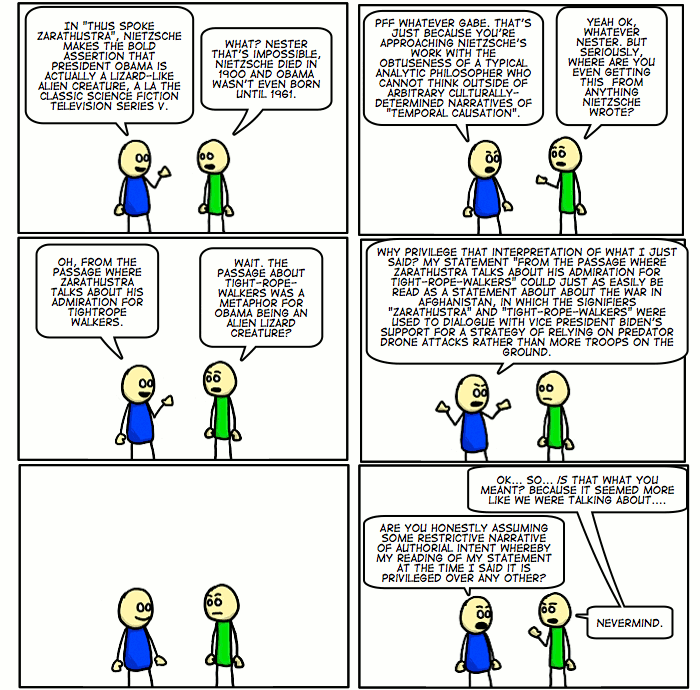obliterate
Warrior Monk
I've just started geting into philosophy, and have started reading Nietzsche's 'Beyond Good and Evil.' I am intrigued by this notion of a master and slave moralities. I also had to read Sophocles' Antigone, for school, and am curious to whether Antigone could be considered of a slave morality and Creon of a master morality. I can't say have a full understanding of the notions of master and slave moralities, in fact only very limited, but I'll try to identify a few point on why I think so. Please correct me if I am wrong.
- The morality of Antigone's decisions are based around the intention of doing her duty for her brother rather than the actual consequence. Even after she has buried Polynices, she is not sasiated and has a death wish.
- The morality of her actions are only aceptable because of the tyrannical nature of Creon rule. Thus, her morality is dependant of that of Creon, who is of a master morality.
- Creon is focused on the consequences of not allowing Polynices his burial rites. He will even kill his son's future wife to acheive his aims.
- Creon is not concerned with the greater good, but simply protecting the strong-willed man's values and he is willing to use fear in order to acheive his aims.

 .
.
